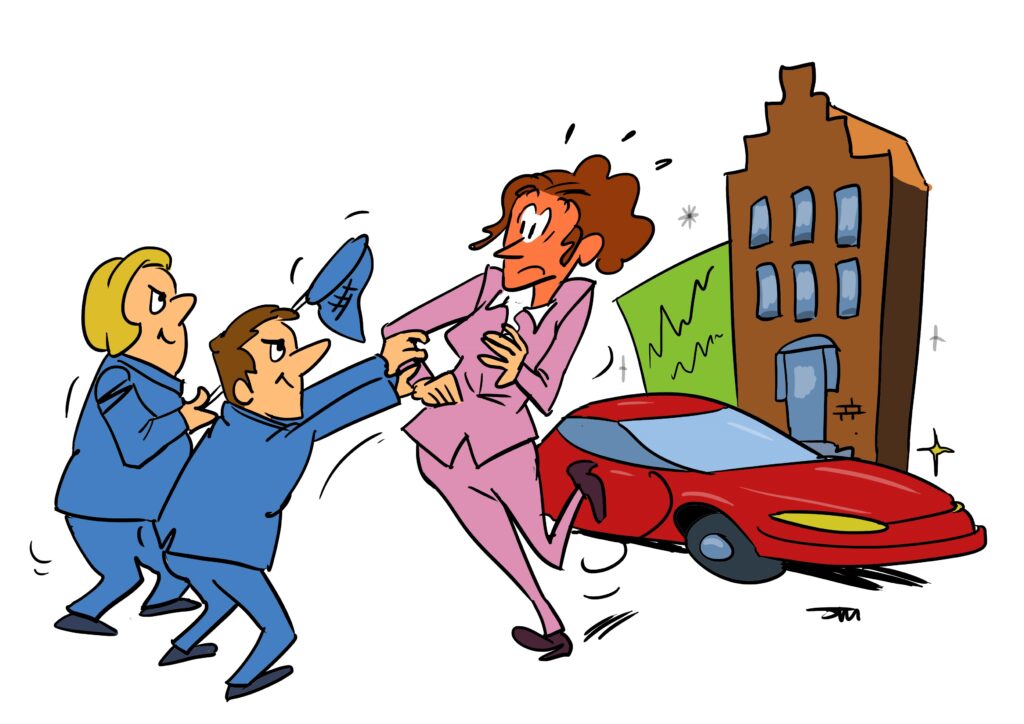Excessive loan from your BV company, what is that? That is now formalized and in action in the next year tax return.
Excessive loan from your BV company
A BV company is a limited liability company, such as the UK Ltd or German GmbH. The shares are often owned by the entrepreneur running the company. Referred to as the shareholder. The shareholder is then running the company in its capacity as director.
In the United Kingdom the mantra is a low salary and a high dividend. In the Netherlands we have minimum salary rules, to avoid the Dutch social system being exploited by these director shareholders.
Despite the minimum salary requirements, it is possible the director shareholder took out the BV company more money than his or her net salary. If that was not a dividend, it can only be a loan.
What is a loan?
A loan is an agreement between two parties where one delivers the money and the other agrees to pay back, pay interest and provide collateral. The collateral determines the interest percentage. The more collateral provided, the lower the risk, the lower the interest percentage.
Most BV company director shareholders simply take out money from the BV bank account, and worry about the formalities later. That implies no collateral is in place, hence the interest percentage should be in line with if you have a debt with the bank on your regular account: 14%.
Excessive loan from your BV company
The Dutch tax office has been fighting the current account credits the shareholder director has with his or her BV for many years. To finish the fight, the new rules is introduced: excessive loan correction.
The moment a shareholder director has a loan with his or her company exceeding EUR 700.000, the excess is assumed to have been dividend. This dividend is then processed.
Example. The shareholder director has EUR 800.000 debt with the BV on January 1, 2024. Then EUR 100.000 is assumed to be dividend and the 26,9%-31% Box 2 tax rate applies.

House loan from the BV
Exception to the EUR 700.000 max excessive loan from your BV correction is the house loan. The amount the director shareholder took out this amount to purchase the house he lives in (box 1 house) or repay the mortgage company the Box 1 house loan. That amount is exempted from this excessive loan from your BV correction.
What is a Box 1 loan? That is a loan used for the purchase, refurbishment of the house that is the main residence of the shareholder. Conditions are that the loan is repaid in 30 years time and interest is actually being paid.
What if you have used the money from the BV for that purpose, but you simply did not agree on repayment of that loan? Then you can adjust that as per November 1 2023. That implies you start to reply and pay the correct amount of interest. No need to retro actively update the repayments.
Other exceptions to the rule
There are many other exceptions to the rule for direct first section bloodline related family, married into family, with or without shares, or with or without more than 5% share capital.
Very complex.
We try to keep it simple by not getting to the excessive EUR 700.000 debt in the first place. It is a balance of enough salary and spending capacity. Keep that up to date, and this is not your topic.
Suggestions?
Now (October 2023) we strongly recommend you to pay yourself a dividend to solve such a matter. Why now? The tax rate in the year 2023 is more favorable than in the year 2024 and more favorable in the year after 2024. The conditions are that you need to have built up enough general reserve (profit reserve) to be able to actually pay out a dividend. And you need to be able to pay the dividend tax due (10%) within one month from the moment the dividend has been decided on.
The balance between this 10% and the total 26,9%-33% is to be paid in the income tax return.
Tax is exciting
We think tax is exciting. Excessive loan from your BV company is not exciting at all. It is a burden that costs interest and worry if that can ever be paid back. The Dutch tax office shares that concern and introduced rules to makes sure they can collect on the tax they should have received in the first place.
If you are able to pay yourself a dividend in 2023, maybe simply do it, as in the future it will be more expensive tax wise.





